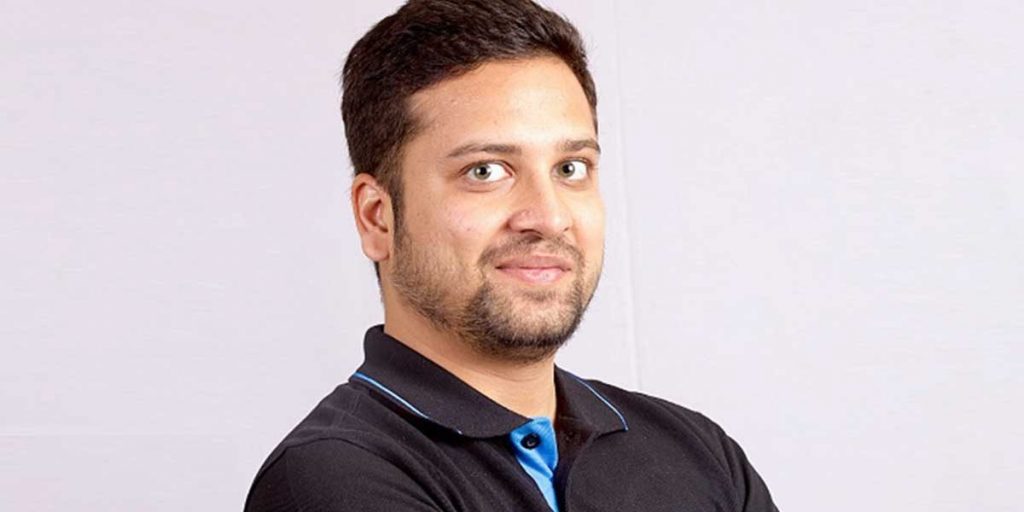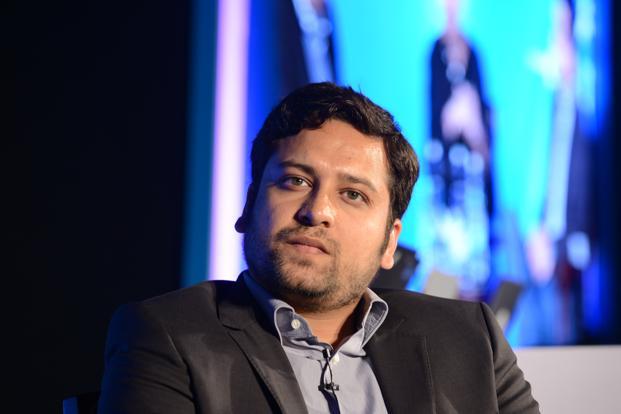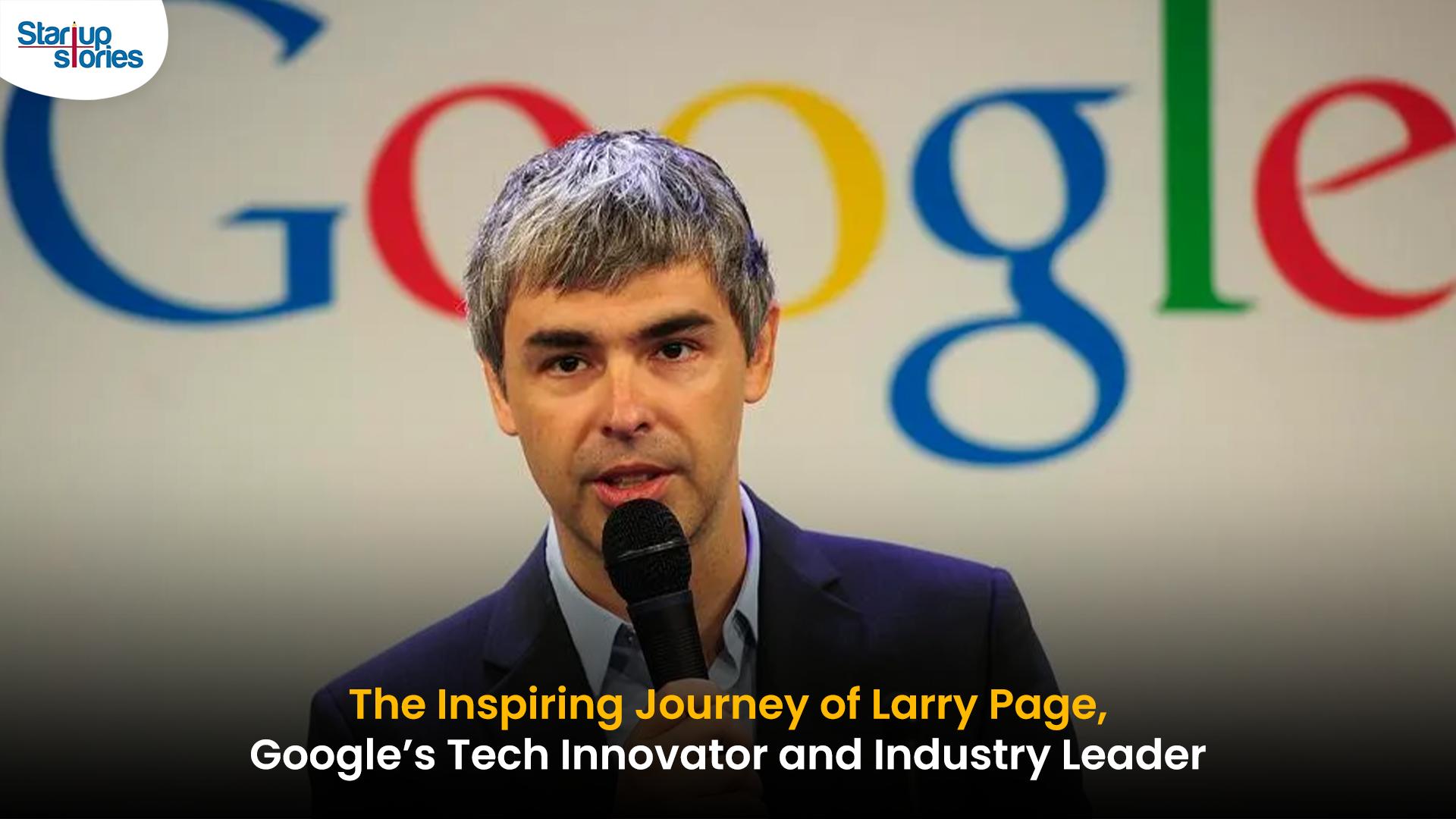Entrepreneur Stories
Binny Bansal’s Life Before And After Flipkart

Binny Bansal, one of the co founders of Flipkart, led quite an interesting life before becoming one of the most sought after entrepreneurs in India. For Binny Bansal, Flipkart came into existence not because it was his dream project, but because Google refused to give him a job!
The early life

Picture credits: entracker.in
Back in the day, Binny Bansal’s primary love was technology and anything to do with technology. In fact, he loved the machine world so much, he even took a couple of courses on artificial intelligence and machine learning. Fresh out of IIT Delhi, Bansal realised his friends were all getting placed in various high paying jobs. While he did apply to these jobs, nothing excited him. This was when he knew he was right about the first love of his life: technology!
Taking the choice to jump from working for a MNC to working for himself was a tough choice for Binny. While there was a strong sense of comfort and satisfaction in taking home a regular package, that spark of excitement was missing. When he was introduced to Sachin Bansal, Binny realised he had finally found his calling! Despite an e commerce platform not being his first choice, Binny Bansal knew he was finally working on something he loved.
The beginning of Flipkart

Picture credits: bloomberg.com
The beginning days of Flipkart were hard. Binny and his partner worked out of a one bedroom apartment, with no real help. The first challenge Binny and his partner, Sachin Bansal, faced was to convince people to invest in their idea. Out of the 40 bookstores they approached, only two people agreed. With the salary Binny had saved from his previous job, the Bansals kicked off Flipkart. Despite having a steady cash flow, getting people to find out about their business was slightly tough. The Bansals sold less than 10 books during the initial Flipkart period.
While initially starting off only as a book delivery platform, the idea of Flipkart started spreading and Binny realised the time had come to expand the company’s product range. One of the key reasons for Flipkart’s massive growth is that both the Bansals decided to never run out of cash. Only when they had enough money and bandwidth for another category, would they decide to expand their services. Through the years, Binny Bansal helped grow Flipkart so much, it started competing with the likes of established platforms like Amazon, Big Basket and Alibaba.
Even though Binny and his partner did not have the kind of technological capabilities which today’s entrepreneurs have, they were always a step ahead of their game. Every move Binny took was to better Flipkart’s overall growth. With his heart invested in finding the right kind of investors for his business, to growing it one job at a time, Binny turned Flipkart into the largest e commerce platforms not just in India all over the world as well!
When Flipkart was in talks of being acquired by Walmart, there was nothing being said about one of the founders leaving the platform. Which is why the news of the exit was such a massive shocker!
Binny Bansal and life after Flipkart

Picture credits: livemint.com
Despite quitting Flipkart, the man who gave birth to it refused to stop being an entrepreneur. Bansal is now working on a different startup and is also helping about 10,000 startups grow and become the next Flipkarts of India!
Founded and funded by Bansal and ex McKinsey consultant Saikiran Krishnamurthy, this startup aims at targeting series B and C startups and will offer them help by giving them software tools. By helping these startups grow, Binny Bansal has made sure to use the tools he learnt during his Flipkart days for the betterment of people who are working on their own startups!
From being rejected by investors, to quitting the Company to which he gave birth and to starting out on the journey of helping other startups, Binny Bansal has lived through a lot. If you think we missed out on any other life facts about Binny Bansal, comment and let us know!
Videos
T.N. Seshan: The Fearless Reformer Who Redefined Indian Democracy

T.N. Seshan’s name stands tall in India’s history as the man who transformed the nation’s electoral system with extraordinary courage and integrity. Born in 1932 in Kerala, Seshan grew up with values of discipline, education, and service to the nation — virtues that shaped his illustrious journey. From his early brilliance at Madras Christian College to his advanced studies in public administration at Harvard University, Seshan’s path reflected rare determination and intellect. Joining the Indian Administrative Service in 1955, he built a reputation as a no‑nonsense officer committed to efficiency and honesty, serving in key roles such as Secretary of Defense and overseeing vital national programs.
As the Chief Election Commissioner of India in 1990, T.N. Seshan sparked a new era of electoral integrity. In a system once marred by corruption, violence, and malpractice, Seshan brought order, fear, and respect through his groundbreaking reforms. He introduced voter ID cards, imposed strict spending limits on campaigns, and insisted on transparency at every level of the election process. Despite criticism from political circles that labeled him dictatorial, his relentless pursuit of fairness empowered every citizen to vote fearlessly. Under his leadership, the Election Commission became a symbol of strength and integrity in Indian democracy.
Seshan’s passing in November 2019 marked the end of an era, but his message continues to resonate across generations. Leaders from every corner of the country mourned the loss of the man who restored faith in free and fair elections. His enduring legacy reminds us that true leadership lies not in wielding power, but in serving people with honesty, courage, and conviction. T.N. Seshan’s life remains a timeless inspiration a reminder that democracy thrives only when its citizens are vigilant, responsible, and fearless.
Entrepreneur Stories
Indian Man Quits JPMorgan, Takes 70% Pay Cut to Launch $6 Million Startup

Leaving behind a high-paying job at JPMorgan, an Indian entrepreneur embraced a 70% salary cut to pursue true purpose and passion in the startup world. Disenchanted with what he described as a “robotic” corporate routine, he sought meaningful work that made a real impact. This pivotal decision marked the beginning of his new journey, one focused on value creation rather than titles and corporate perks.
Powered by resilience and fresh perspective, the entrepreneur launched his own startup, prioritizing innovation and hands-on solutions. The road was challenging, but his vision resonated with the market: the startup quickly gained traction and raised $6 million—an impressive acknowledgement of its potential in a competitive landscape. Every hard lesson from early setbacks and bootstrapping paid off in real customer growth and investor confidence.
Today, his journey stands as an inspiring example for professionals seeking authentic success outside the corporate grind. By trading comfort for creative freedom, he grew a venture that solves important problems, generates jobs, and builds wealth beyond just salary. For ambitious founders, his story highlights the power of risk-taking, adaptability, and relentless focus on impact in India’s thriving startup ecosystem.
Videos
Larry Page: The Visionary Co-Founder Behind Google’s Global Success

Larry Page is a visionary technology entrepreneur and co-founder of Google, one of the world’s most influential companies. Born in 1973 in Michigan, Page grew up surrounded by computer technology, which inspired his passion for innovation from an early age. He studied computer engineering at the University of Michigan and later pursued his PhD at Stanford University, where he developed the revolutionary PageRank algorithm with Sergey Brin. This technology fundamentally changed the way search engines rank websites, making Google the most accurate and popular search engine globally.
The journey of Larry Page and Google began in 1998 when they officially launched the search engine from a small garage. Leveraging their unique algorithm, Google quickly surpassed competitors due to its ability to deliver highly relevant search results, transforming internet search forever. Under Larry Page’s leadership as CEO, Google expanded beyond search to launch groundbreaking products including YouTube, Gmail, and Google Maps, turning it into a global tech powerhouse that shapes how we access and interact with information online.
Larry Page later became the CEO of Google’s parent company, Alphabet Inc., driving innovation and investment in next-generation technologies such as artificial intelligence, autonomous vehicles, and healthcare solutions. His visionary leadership and commitment to technological advancement have cemented his legacy as one of the most influential figures in the tech industry. Today, Larry Page remains a key influencer in shaping the future of technology and digital innovation worldwide.













Kuwin
November 6, 2025 at 9:42 am
kuwin sở hữu kho game đa dạng từ slot đến trò chơi bài đổi thưởng, mang đến cho bạn những giây phút giải trí tuyệt vời.
MM88
November 7, 2025 at 4:57 pm
Với giao diện mượt mà và ưu đãi hấp dẫn, MM88 là lựa chọn lý tưởng cho các tín đồ giải trí trực tuyến.
J88
November 10, 2025 at 4:37 pm
Đến với J88, bạn sẽ được trải nghiệm dịch vụ cá cược chuyên nghiệp cùng hàng ngàn sự kiện khuyến mãi độc quyền.
ios超级签
November 11, 2025 at 4:43 am
苹果签名,苹果超级签平台,ios超级签平台ios超级签苹果企业签,苹果超级签,稳定超级签名
站群程序
November 14, 2025 at 11:42 am
搭载智能站群程序,自动化搭建与管理,为SEO项目提供核心驱动力。站群程序
MM88
November 30, 2025 at 4:35 pm
Khám phá thế giới giải trí trực tuyến đỉnh cao tại MM88, nơi mang đến những trải nghiệm cá cược thể thao và casino sống động.
jili slot free 100
December 19, 2025 at 10:12 am
jili slot free 100 jili slot free 100
Nomini Casino Freispiele Bonus
December 21, 2025 at 2:48 am
300 % bis zu 1.500 € + bis zu 500 Freispiele Spieler können aus
über 4.000 Spielen wählen, darunter Slots, Tischspiele und Live-Casino-Angebote.
Das Roosterbet Casino bietet mehrere Einzahlungsmethoden an. Spieler können aus über 4.000 Spielen wählen, darunter Slots, Tischspiele und Live-Casino-Angebote.\r
Dennoch werden wir die Details zu Neosurf-Casinos im folgenden Material besprechen, da Neosurf die Verwendung von MasterCard anbietet, was eine legale Zahlungsmethode für Casinodienstleistungen in Deutschland ist.
Visa ist weltweit eine beliebte Wahl für Spieler, die mit echtem Geld spielen möchten,
und wird von zahlreichen Online-Casinos akzeptiert. MasterCard ist
die beliebteste und legale Zahlungsmethode für deutsche Spieler, die in Online-Casinos um
echtes Geld spielen. Viele Casinos akzeptieren Bitcoin direkt, so dass
Sie ohne Banken und Verzögerungen spielen können.
Menschen, die am härtesten arbeiten, haben die Chance, große € Preise, Freispiele oder
sogar besondere Waren zu gewinnen. Wenn Sie bestimmte Spielautomaten oder Tischspiele spielen, können Sie Punkte sammeln. Sie können aus Hunderten von Spielen mit Demoversionen wählen, die Sie
spielen können, um Ihre Strategien zu verbessern, bevor Sie echtes Geld ausgeben.
In einem Online Casino zu spielen sollte Spaß machen.
Neue Mitglieder profitieren von einem Willkommenspaket von bis
zu 5.000 € und 300 Freispielen. Sie können kostenlos und zum Spaß
spielen – kein Download, keine Registrierung und keine Einzahlung.
World Casino Expert ist eine moderne Spieleseite mit kostenlosen Casino-Glücksspielen. Wenn Sie sich entscheiden, um
echtes Geld zu spielen. \r
\t\t\tNeue Mitglieder profitieren von einem Willkommenspaket
von bis zu 5.000 € und 300 Freispielen.\r
References:
https://online-spielhallen.de/umfassende-details-zum-hit-spin-casino-cashback/